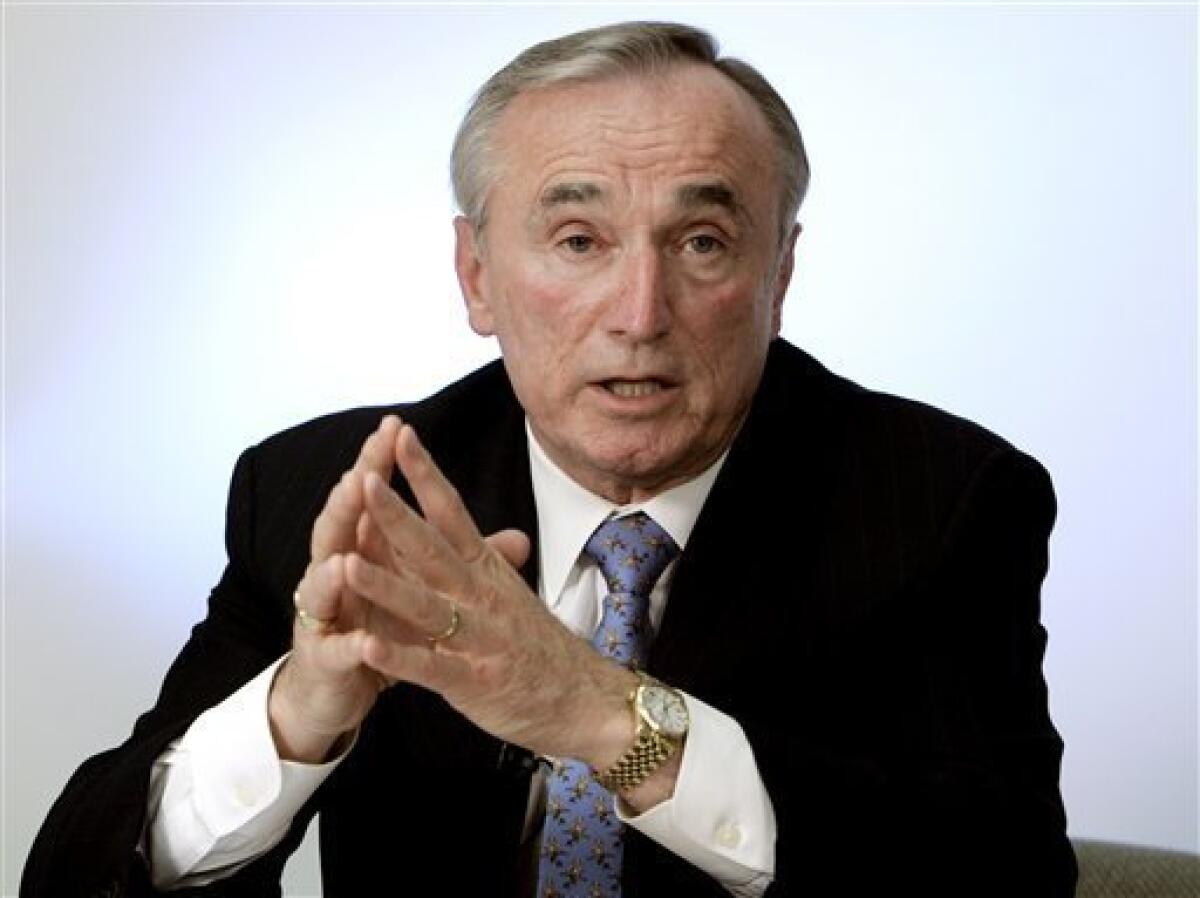Police chief Bratton shocks LA with resignation

Police Chief William Bratton stunned the city Wednesday, saying he will step down after a seven-year tenure when crime rates plummeted to 1950s levels and once-contentious relations between officers and diverse communities improved.
Only a month ago, Bratton said he was shopping for a new home in Los Angeles. Now he intends to join a global security firm based in Virginia.
“For me personally and professionally it is the right time,” Bratton, 61, told a standing-room only City Hall news conference.
When Bratton took over in 2002, the Los Angeles Police Department was still struggling to recover from a corruption scandal and the notorious 1991 videotaped beating of Rodney King.
“It was a troubled organization in what was arguably a very troubled city,” he said.
Bratton will leave at the end of October widely credited with ushering in an era of safer streets and eased relations between police and the people they protect. Among other improvements, he cited city efforts to deter terrorism.
But he hoped his legacy would be improved race relations.
“I believe we have turned a corner in that issue, in that this is a city that is proud of its racial diversity, it is a city where people work together. It is my belief that the Los Angeles Police Department has played a significant role in bringing that about,” he said.
Bratton’s decision came just weeks after a judge released the department from eight years of oversight by the U.S. Department of Justice, which had alleged a long pattern of abuse.
Bratton plans to join Altegrity Inc., headquartered in Falls Church, Va., to bring professional policing to emerging nations. He said part of the lure was a larger paycheck as he approached retirement and the opportunity to work with a friend, Michael Cherkasky, who heads the company.
Cherkasky was the lead monitor overseeing the LAPD under the federal consent decree until it was terminated last month. Bratton also worked for him as a consultant before joining the department.
Bratton saw no conflict in going to work for Cherkasky.
His exit set off speculation about a successor as well as tributes to his leadership.
“I’m in mourning today,” said John Mack, a high-profile African-American member of the civilian Police Commission who in his past role as leader of the Los Angeles Urban League was a frequent critic of the department. Mack stood at Bratton’s side at the news conference, along with Mayor Antonio Villaraigosa.
“The people of Los Angeles are safer than they’ve been in half a lifetime,” said City Council President Eric Garcetti, crediting Bratton for reforms and for knocking down the crime rate to levels not seen in decades.
Media reports often mentioned Bratton as a likely candidate for top jobs at the FBI and U.S. Department of Homeland Security. But he gave no hint he was leaving California. When Bratton placed his four-bedroom Los Angeles home on the market last month, he told the Los Angeles Times he and wife Rikki Klieman planned to buy another residence in the area.
Bratton was picked to lead the LAPD after heading police forces in New York City and Boston. He will leave Los Angeles two years into his second and final five-year term.
Los Angeles police chiefs once enjoyed unlimited appointments, but changes driven by the King beating and resulting 1992 riot led to term limits.
One goal of the Bratton administration was to make the force more closely resemble the diverse city.
The 10,000-officer force is now 42 percent Hispanic, 37 percent Caucasian, 12 percent black and 7 percent Asian, according to Gerald Chaleff, the civilian administrator in charge of the department’s reform office.
African-American commentator and community activist Earl Ofari Hutchinson said Bratton’s departure will be a “tremendous blow” to the city.
“Bratton did more than any other chief in recent times to really push the envelope on reform, minority recruitment, community policing, resolving tensions in Los Angeles between minority communities and the Police Department,” Hutchinson said.
Even the city police union praised Bratton while acknowledging some disagreements.
“He successfully used his visibility to strengthen partnerships between LAPD and the residents it serves,” Police Protective League President Paul M. Weber said in a statement.
A statement issued by Ramona Ripston, executive director of the American Civil Liberties Union of Southern California, called Bratton’s departure a great loss but said not enough was done to end what the group called a high rate of stops, frisks and arrests of blacks and Hispanics, compared to whites.
“That’s a very troubling trend,” she said.
Bratton’s tenure in New York was marked by a rivalry of egos with then-Mayor Rudy Giuliani, friction that led to his departure. But he and Villaraigosa call each other friends. The mayor said Bratton turned the department into a partner with the community, “not an adversary.”
Andre Birotte, the department’s inspector general, who oversees internal investigations, said he was surprised and disappointed by Bratton’s departure.
“He has made a lot of changes in the department and his reputation for transparency will be one of the hallmarks of his tenure,” Birotte said.
–––
Associated Press Writers Thomas Watkins and John Antczak contributed to this report.